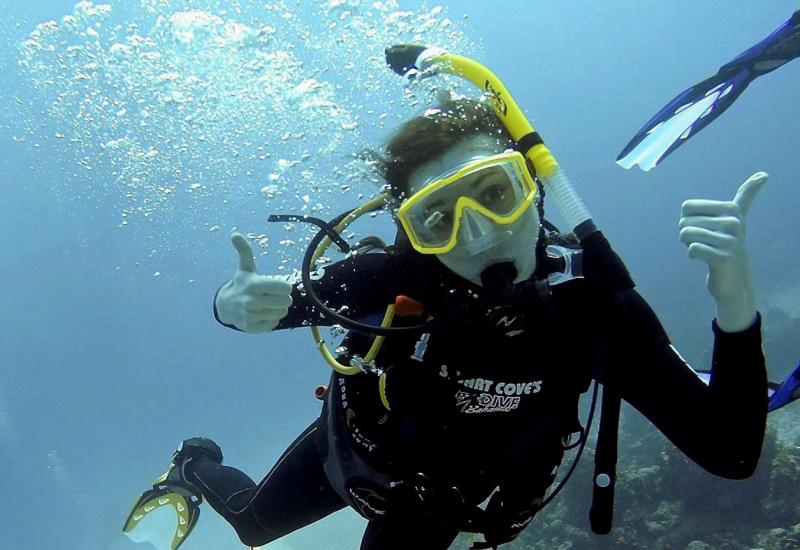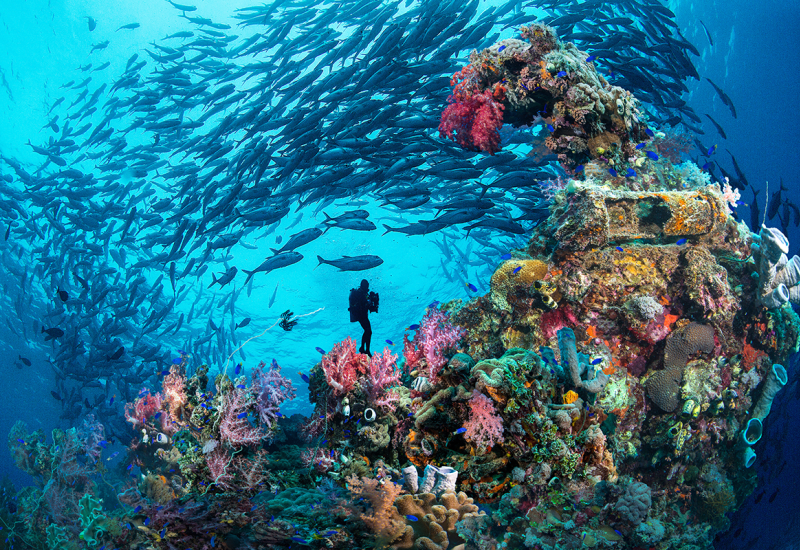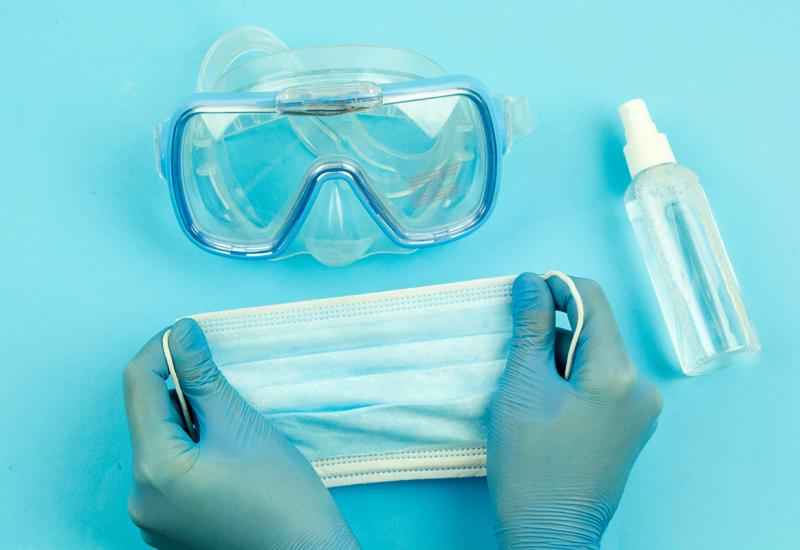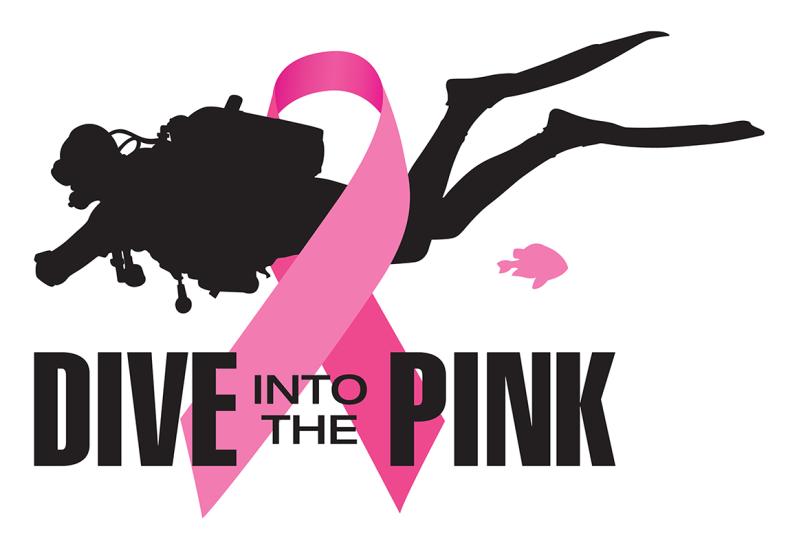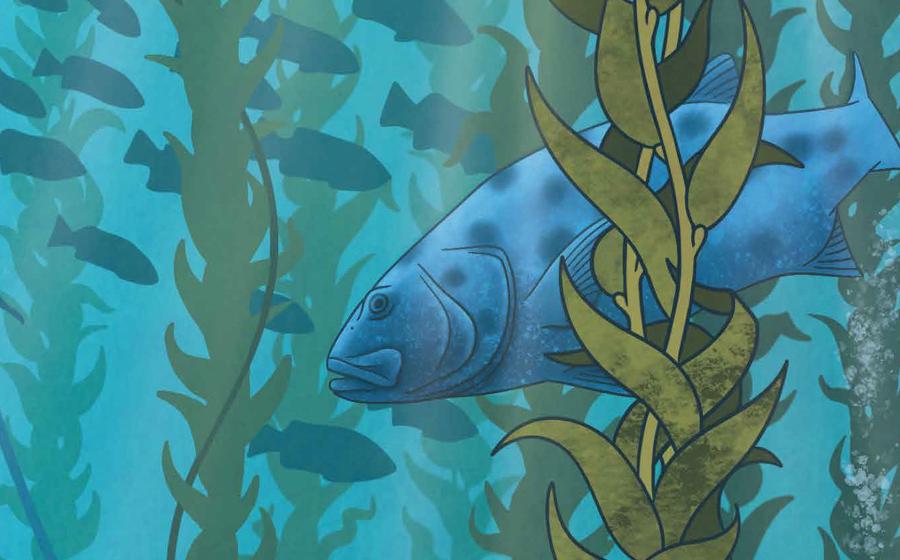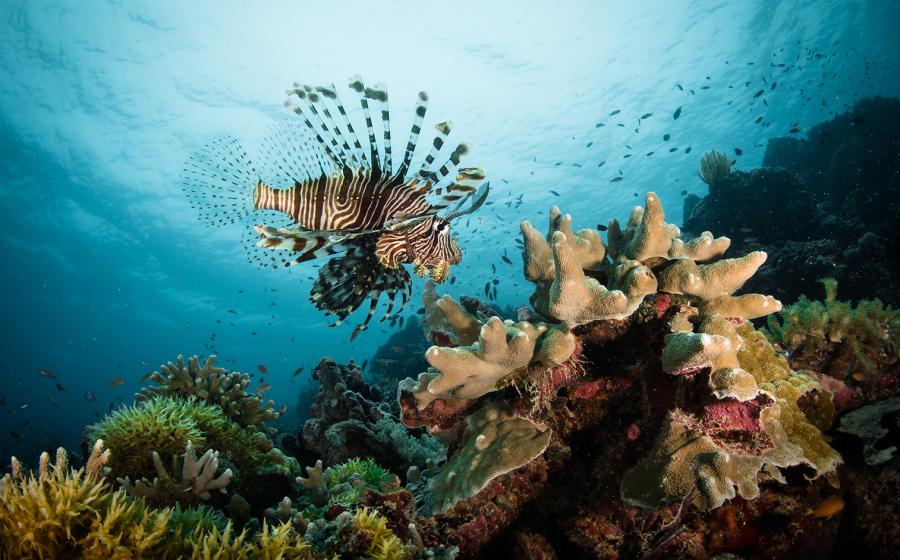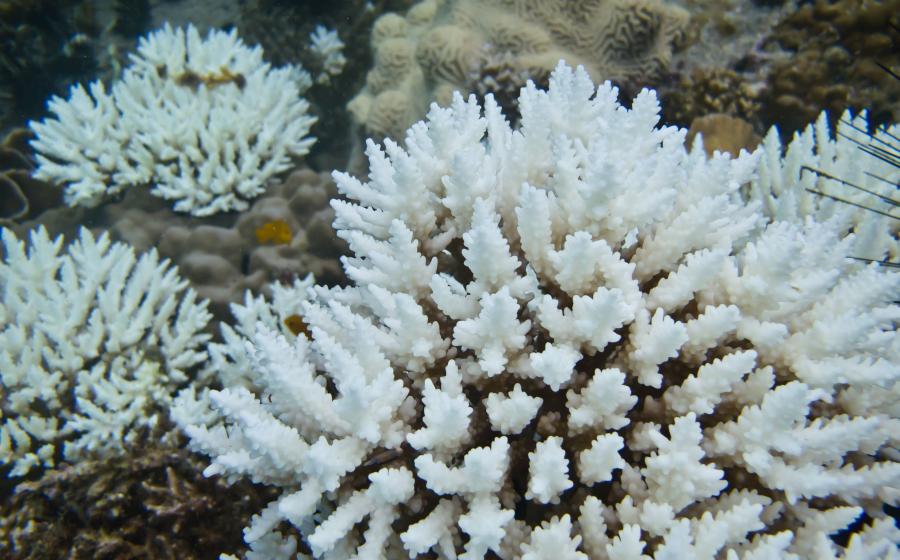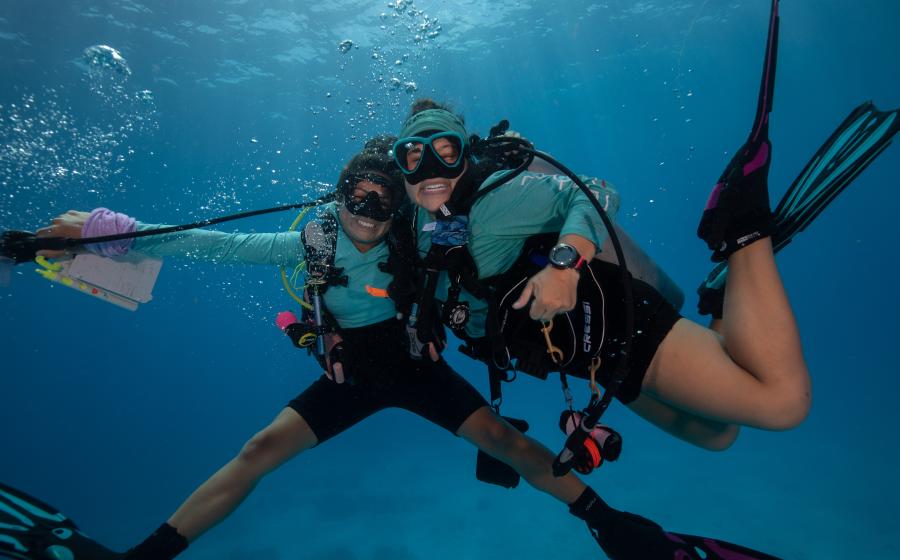Dive Training: Now That's Using Your Head
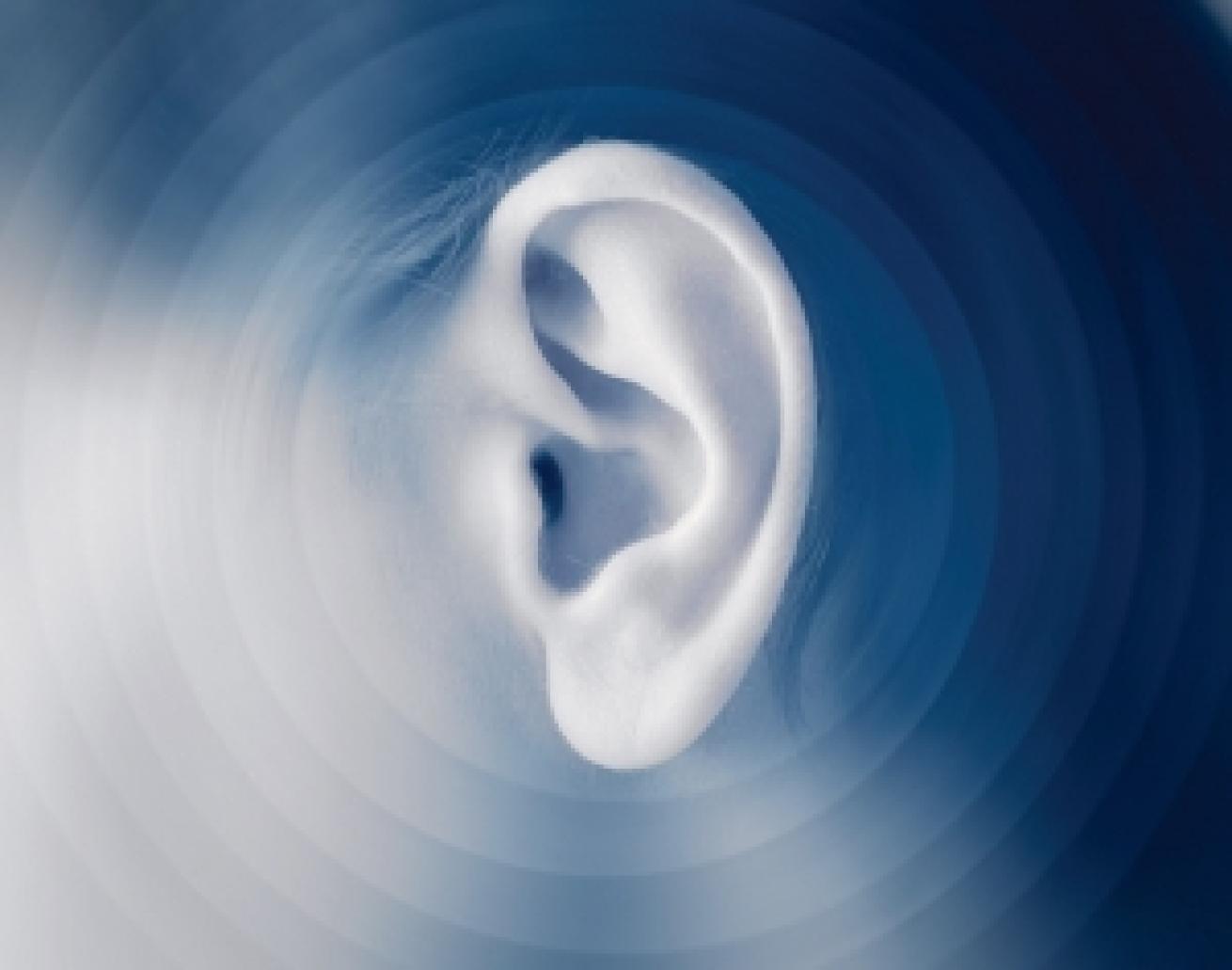
Shutterstock
The control center for every dive is located directly above your neck. Here's how to keep all the parts in working order.
( EARS )
Equalizing Made Easy
What to do if the old "pinch your nose and blow gently" isn't getting the job done? Start sooner. "By the time you feel pressure in your ear it's almost too late," says Ned Branch, a PADI instructor. "You need to start equalizing before you feel the need for it."
Remember that equalizing is a matter of opening your Eustachian tubes, those hair-like pathways that run between your middle ear spaces and throat. The tubes have one-way valves at their entrance, and blowing very slightly against pinched nostrils or moving the right throat muscles will open them. But if you wait until the pressure on the tubes is too great, they clamp shut, making it impossible to equalize.
Here's how to make equalizing easier. First, check that your Eustachian tubes can open before you even get in the water. All you have to do is swallow. If you hear a "click" or "pop" in each ear, you know you'll be able to equalize, because that pop is a puff of air that's been forced by your tongue up a Eustachian tube and is hitting an eardrum. No "pop" means the tube is blocked.
Next, equalize repeatedly in the hours before you get in the water, by swallowing while pinching your nose. Blow gently if you need to, but don't brutalize those tiny tubes, as that can cause mucus to secrete and block them.
In the water, the last thing to do before leaving the surface is to "prepressurize" your ears with a gentle pinch-and-swallow or pinch-and-blow. That gets you a little ahead of the game, and you need that head start because the pressure on your ears builds fastest in the first few feet of descent. Try to equalize at two feet and again at four feet down. If you're not equalized at six feet down, you may not be able to equalize at all.
Equalizing is also easier when you descend feetfirst, as rising air in your Eustachian tubes automatically moves toward your ears, not away from them. And if you look up toward the surface, you'll stretch your neck and help open the tubes.
Swimmer's Ear
Got an itch inside your ear? It's otitis externa, or "swimmer's ear," an infection of the outer ear canal caused because constant immersion washed away the waxy film that normally protects it. Now the skin stays wet and starts growing bacteria. After itching comes redness and pain. There are both prescription and over-the-counter eardrops to prevent and treat it, by drying the skin and killing the bacteria. Divers Alert Network reports divers have had luck with a home brew: a 50/50 mix of white wine vinegar and isopropyl alcohol. Tilt your head, fill one ear, and hold it there for five minutes, then do the other ear. If this doesn't work, or if pain spreads to your jaw and cheek, see a doctor.
( SINUSES )
Diving with a Cold
You've got the sniffles but you didn't fly to Cozumel just for the nightlife. Can you dive? First question, can you equalize your ears? Often, a cold means mucus that blocks your Eustachian tubes. Obviously, if you can't equalize, you can't dive.
And are your sinuses blocked? They're the same problem: Sinuses are air spaces in your skull connected to the outside world by passages that can become blocked. A sinus "squeeze," on descent or ascent, can be painful. You'll feel it behind your eyes or just above them, or just above your incisors.
Second, what medication are you taking for the cold? All of them have side effects that hit some of us harder than others. Antihistamines can make you drowsy while decongestants like pseudoephedrine can cause excitability, restlessness and dizziness. These effects can be magnified by pressure at depth.
There's another problem with decongestants. When they wear off they often have a rebound effect and cause more congestion than before you took them. This could cause a "reverse squeeze" if it wears off as you begin your ascent. Use a decongestant that works for 12 hours to be sure it won't wear off when you make a second or third dive later in the day.
Remember this advice when diving with a cold: (1) be sure you can equalize your ears; (2) minimize your medications and take only those meds that you know you don't have an unusual reaction to; (3) keep your dives a bit shallower and shorter; and (4) descend and ascend slowly to make equalizing as gradual as you can.
( EYES )
Vision Correction
Nearsighted? Farsighted? Most two-window and four-window masks can be fitted with corrective lenses, either from the manufacturer (usually in 1-diopter increments) or can be custom-made to your prescription. (SeaVision USA, www.seavisionusa.com, is one source. The company even makes bifocal lenses.) By the way, you don't want the same prescription as your glasses for land, because the water itself acts as another lens. Choose lenses 10 percent stronger if you're nearsighted, 10 percent weaker if you're farsighted.
You can also get color correction. Water filters out much of the red, orange and yellow frequencies, so a lens which filters out some green and blue (it will look pinkish-red) will restore the correct color balance. Color correction is not as important for your eye as it is for your camera, however, because your brain will go pretty far to restore the correct color balance and boost the red and orange frequencies without the help of a colored lens.
Can you dive safely with contact lenses? Lasik? You can dive with either. Be extra careful about contaminating your soft contact lenses, as seawater under the microscope looks like something out of a bio-warfare lab. After Lasik surgery heals, pressure (from depth) is no problem. However, the older radial keratomy (RK) surgery, still used for some conditions, weakens the cornea, and there is at least a theoretical risk it could collapse if you have a serious mask squeeze.
( COMMAND & CONTROL )
Nitrogen Narcosis
Though Cousteau called it "rapture of the deep," probably no one has tried to kiss a fish because of nitrogen narcosis. Forgetfulness and confusion are more typical signs, with some silliness or anxiety, depending on your mood. It is caused by breathing any inert gas under pressure, though some gases are more narcotic than others. Helium is less narcotic than nitrogen, and xenon is so narcotic, even at the surface, that it's used as a surgical anesthetic.
No one knows exactly how narcosis (or anesthesia, for that matter) actually works, but it apparently interferes with the chemical-electrical signals passing between nerve cells in your brain. Anesthesia, in fact, is probably the best description of what nitrogen narcosis is doing to you: silliness, forgetfulness and confusion are normal way stations before anesthetic unconsciousness. Not the best state of mind for diving. Narcosis is entirely dependent on depth, though each diver may have a different narcotic threshold, and various drugs can inhibit or promote it.
You can't really prevent nitrogen narcosis other than by staying shallow. You can make it go away pretty quickly just by ascending, sometimes only 10 feet or so.
What's the depth where narcosis is likely to be noticeable? About 100 feet, though tests show some divers to be slightly narced at only 30 feet.
Underwater Panic
Though panic may be the single greatest danger to divers, it is relatively easy to avoid. A panic attack almost never arrives full-blown and unannounced. Panic is usually caused by having to deal with a sequence of individually small problems, each of which leaves a residue of stress behind to accumulate. At some point the accumulation reaches the breaking point.
For divers, the stress-building usually starts before you get wet. For example, on the way to the dive site, you hit a traffic jam, then find the parking lot is full and discover you've forgotten your after-dive jacket--and where's your C-card? Then in the rush to gear up, you make mistakes, jump in, find the water is freezing and the vis is lousy. Next, your tank valve gets caught in kelp and your mask floods. If you begin to feel overwhelmed and panicky, the mask flood wasn't the cause, and neither was the kelp nor the traffic jam. All those stresses together caused your panic. To prevent panic, you should anticipate and avoid the accumulation of stress-causing problems.
The pre-dive stresses are easiest to avoid. For example, don't start the dive day tired, late and poorly organized.
Once in the water, the best stress avoiders are to breathe deeply and swim slowly. Pay careful attention to your buoyancy control because if you can remain stationary and you can breathe, you can take more time to deal with, say, a flooded mask. And when in doubt, stop. Take a deep breath. Calmly think the situation through. And then, and only then, act.
When Diving Gives You A Headache
An occasional headache is probably meaningless, but what if you almost always surface with pain? There can be lots of reasons.
A dull, nonthrobbing ache in the back of your head is often a neck problem caused, for example, by a tank mounted so high on your BC that you have to bend your neck an odd way to keep from hitting the valve with your head. Sharp pains above, below and behind your eyes are likely a sinus squeeze, maybe a side effect of a cold. Failing to equalize your mask can cause a headache, as well as the bloodshot eyes and bleeding nose that so alarm your dive buddy. Cinching the mask strap too tightly can also cause a headache.
Cold water can also be the culprit in causing your headache. Your head chills more easily than the rest of your body because there's so much blood flow just under your scalp and so little fat protecting it.
Caffeine and tobacco can cause headaches under water, even when they don't on the surface. It's possible that pressure at depth magnifies their effects, as it does for many drugs. Dehydration is another cause of a headache.
A more serious cause of headache is carbon dioxide retention. Maybe you had to fin very hard so your breathing became short and rapid. Those short, rapid breaths mostly recycle "dead" air and don't wash out CO2. When you're working hard, it's important to force yourself to take deep breaths.

